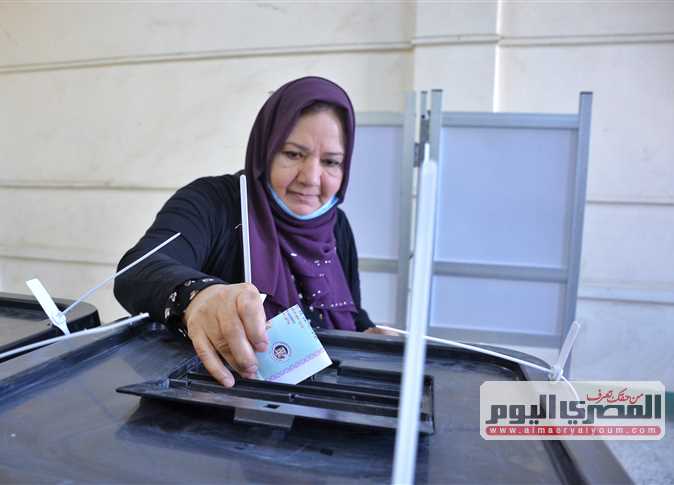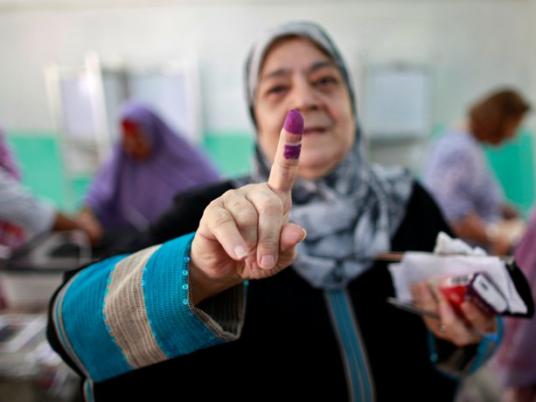First it was Arab League chief Amr Moussa’s turn in the presidential speculation spotlight. Then there was a brief–and admittedly tongue-in-cheek–mini-campaign for Alaa Mubarak, President Hosni Mubarak’s eldest son and Egypt’s super patriot. Now it’s the Season of ElBaradei, as the nation turns its attention to yet another would-be dark-horse contender for the presidency.
With many in Egyptian political circles saying that we’re already deep in the final stages of the Gamal Mubarak succession endgame, there seems to be a new-found hunger for semi-plausible alternatives. Call it the ABG–or "anybody but Gamal"–voter bloc.
But this time around there’s one crucial difference: Mohamed ElBaradei, the outgoing head of the International Atomic Energy Agency, seems to be actively courting that hunger.
Earlier this month, the 67-year-old ElBaradei fired a warning shot at the government when he said he might actually be interested in competing in Egypt’s second-ever multi-candidate presidential elections, scheduled for 2011.
The announcement sent shockwaves throughout the local press, with one newspaper dubbing it “The ElBaradei Storm.” Anonymous sources claimed–incorrectly, it turns out–that ElBaradei was planning an imminent visit to Egypt.
In response, government-backed columnists dutifully launched a smear campaign portraying ElBaradei as an out-of-touch interloper who spent most of the past 40 years abroad and who might just have a foreign passport tucked away somewhere.
It’s understandable why his announcement caused such a fuss. After all, Moussa managed to dominate headlines for several days by merely by refusing to categorically deny his rumored candidacy.
Speculation about Alaa Mubarak’s presidential ambitions, meanwhile, could be attributed to a goof by Ibrahim Eissa, editor-in-chief of independent daily Al-Dustour, who wrote that Alaa’s impassioned interviews during the Egypt-Algeria debacle had shown he had more of a populist touch than his younger brother.
Lost amid the chatter, however, were the extremely long odds of an ElBaradei presidential campaign actually happening.
In public statements and interviews, ElBaradei essentially disqualified himself by saying he would only consider running if an incredibly unlikely set of conditions was met. Among his demands: written guarantees that elections would be free and fair, supervision of the vote by UN monitors, and a constitutional amendment eliminating obstacles to an independent candidacy.
In the absence of these conditions, ElBaradei said, “elections will lack the needed legitimacy and will contradict the essence of democracy… it will end in a Greek tragedy.”
Even if he were willing, ElBaradei would have a hard time getting on the ballot. The 2005 constitutional amendment that established multi-candidate presidential elections also came with rules designed to ensure that no independent candidates could crash the party.
"I am ready to act peacefully and in an organized way to change the constitution," ElBaradei said in an interview with Al-Masry Al-Youm from his Vienna home earlier this month. "I will work with the people."
If he chose to run as a candidate without party affiliations, ElBaradei would have to secure the backing of 250 representatives in both houses of parliament and in local councils–all of which are firmly controlled by Mubarak’s ruling National Democratic Party.
The only other route would be through holding a leadership position in a licensed political party. Given that most Egyptian opposition parties are themselves known for autocracy, it seems unlikely that any of the established party chiefs would step aside for ElBaradei. But for what it’s worth, the fringe Free Constitutional Party has already offered him a spot.
At this point, it remains unclear whether ElBaradei really sees himself as a potential presidential contender or whether he’s merely using his name and position to prod the government towards reform. Theoretically, he could do just as much damage as a high-profile boycotter of the 2011 vote, gathering other independent and opposition forces to his side based on charges that the Egyptian democratic game is rigged.
In truth, most Egyptians probably don’t know all that much about ElBaradei, who rose to prominence as the head of the agency in charge of hounding alleged Iraqi and Iranian nuclear ambitions.
Nevertheless, ElBaradei’s appeal may lie as much in what he isn’t as what he is. He isn’t from the military, he isn’t a regime-connected oligarch and–perhaps most importantly–he isn’t you-know-who.




